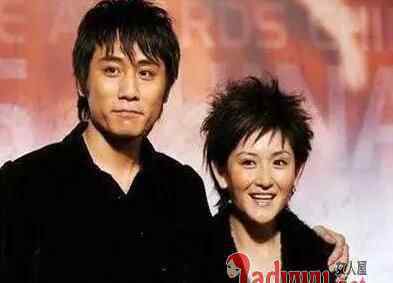
第八节 动 词(7-1~13-1)
考试大纲要求
动词包括时态、被动语态、动名词、分词以及虚拟语气。
(1)动词的分类:及物动词与不及物动词;连系动词;助动词;情态动词。
(2)动词的基本形式:动词原形、过去分词、现在分词;不规则动词的形式
(3)动词主要时态的构成及其用法。包括一般现在时,现在进行时,现在完成时,现在完成进行时,一般过去时,过去进行时,过去完成时,完成进行时,一般将来时,将来完成时,过去将来时。
(4)情态动词及其基本用法。
(5)非谓语动词(不定式、动名词、分词)的形式及主要用法。
(6)被动语态的构成及其基本用法。
(7)虚拟语气的常见形式及其基本用法。
一、动词的分类
动词类型 在句子中的用法
及物动词 后面接宾语
不及物动词 后面不接宾语,或接“介词/副词+宾语”
连系动词 后面接表语
助动词 后面接动词原形
情态动词 后面接动词原形,或接动词的完成式
二、动词的基本形式
动词除原形外,还有过去式、过去分词和现在分词三种形式。
(一)过去式和过去分词的构成
1.一般情况下在原形后加-ed.如:work-worked, help-helped.
2.以e结尾的单词,在原形后加-d.如:like-liked, joke-joked, hope-hoped.
3. 以“辅音字母+y”结尾的单词,变y为i再加-ed.如:study-studied, carry-carried, copy-copied.
4.以重读闭音节、末尾只有一个辅音字母结尾的单词,双写末尾的辅音字母再加-ed.如:stop-stopped, prefer-preferred, admit-admitted, plan-planned.
有些动词的过去式和过去分词有特殊的形式。
cost-cost-cost meet-met- met catch-caught-caught rise-rose-risen drive-drove- driven get-got-got/gotten leave-left-left smell-smelt/smelled-smelt/smelled tell-told-told
take-took-taken
(二)现在分词的构成
1.一般情况下在原形后加-ing.如:go-going, carry-carrying, play-playing, answer-answering, ask-asking. 2.以不发音的e结尾的单词,去e加-ing .如:live-living, come-coming, dance-dancing, write-writing. 3.以重读闭音节、末尾只有一个辅音字母结尾的词,双写末尾的辅音字母再加-ing . 如:sit-sitting, begin-beginning, permit-permitting, run-running, forget-forgetting.
有些动词的现在分词有其特殊形式。如:die-dying, lie-lying, tie-tying, picnic-picnicking.
三、动词的主要时态
(一)一般现在时
一般现在时表示经常性或习惯性的动作、现在的特征和状态、普遍真理等。
Galileo said the earth moves around the sun.
一般现在时的谓语形式:
1.当动词为实义动词,如read, go, look时,谓语用动词原形,否定句在动词前面加do not ,疑问句加助动词do .常和always, often, usually, sometimes, everyday等表示时间的状语连用。
I go to school everyday.
I read the newspapers after lunch.
Do you agree with me?(agree with sb. 同意某人观点)
I don"t quite agree with you.
主语为第三人称单数时,动词后面一般加s(具体变化规则与名词变复数相同)。否定句加does not, 疑问句加does . My father gets up at six everyday. He loves sports. Does it hurt? Does Miss Wu teach us English? The machine doesn"t run smoothly.
2.当动词为be时,谓语随人称和数的不同用am, is, are 三种形式。
One is not guilty until he is proved. 在被证明有罪之前, 人都是无罪的。
Knowledge is power.知识就是力量。 She isn"t afraid to go to school alone now.
Are you from Yunnan?(be from 来自……地方) What she says is true.
3.当动词为have, 表示“有”时,谓语用have, 主语为第三人称单数时,用has. 否定句相应用haven"t, hasn"t, 或don"t have , doesn"t have, 疑问句将have, has 提至主语前面或加助动词do, does.
My sister has a lot of toys. She always have a lot of homework to do.
Has she/Does she have any money on her? They don"t have/haven"t much experience.
当have 作实义动词,如have a look, have breakfast, have lunch, have supper时,句子的谓语形式与其他实义动词相同。 Let"s have a look at the picture. I always have breakfast at home. She often has lunch in the dinning hall.
always、often通常放在系动词之后,实意动词之前。1. It is an accepted custom in our country for men to remove their hats when a woman ______ the room.
A. enter B. enters C. entering D. entered
wheh状语从句中的主语是第三人称单数, 答案 B
2. “I"m leaving now. ” “Make sure _______ the door.”
A. you lock B. you"ll lock C. for locking D. locking
make sure+动词原型或句子。 答案 A
3. Jean could be a very attractive girl but she ________ to her clothes.
A. pays no attention B. paying no attention
C. was paying attention D. had paid attention 答案 A
4. “How does Alma like her new work?” “She _______ with the hours.”
A. can"t satisfy B. isn"t satisfied C. doesn"t satisfy D. hasn"t satisfied
be satisfied with 对……满意 答案 B
(二)一般过去时
一般过去时表示过去某个时间发生的动作或情况,包括过去的习惯性动作。常与表示过去的时间状语连用。如:a minute ago, yesterday, last week, in 1990, during the night, in those days. 用过去时时, 说“过多少时间之后”, 一般用 after, 不用in.
一般过去时的谓语形式:
1.动词为实义动词时,谓语用动词的过去式,否定句在原形前加did not, 疑问句加助动词did. 如:
John suddenly fell ill yesterday.(fall-fell-fallen)
My mother didn"t look well when I saw her last time.
It happened after four days. Did they go to Canada last week?
Nothing happened since then. He went out just now.(just now 刚才)
A book that cost a few jiao several years ago is worth 30 yuan now.
2.动词为be, 主语是I 或第三人称单数时,谓语用was, 其他情况用were. 如
They were classmates when they were ten years old. She was once a doctor but now she has retired .
Why were you absent from school yesterday?
3. 动词为have 时,肯定句谓语用had. 表示“有”时,否定句可用had not,疑问句将had 提至主语前面,也可与have作实义动词时相同,即否定句用didn"t have, 疑问句加助动词did.如:
They didn"t have any money left and they couldn"t afford the house.
She didn"t have any rest at noon and continued to work.
Did you have dinner with Mr. Wang at that famous restaurant the day before yesterday?
We had a big factory forty years ago.
1. John was finishing his assignments when his father _______ home from work.
A. came B. comes C. has come D. is coming
主句为过去时,状语从句也为过去时。 答案 A
2. The first zoological garden in the United States _________ in Philadelphia in 1874.(zoo)
A. had established B. has established C. was established D. established
考试时应先考虑句子是主动还是被动,然后再考虑时态。 动物园应该是被建
A、D都是主动语态。 答案 C
(三)现在进行时
现在进行时主要表示现在或现阶段正在进行的动作。可与now, at present, at this moment, these days等时间状语连用。
现在进行时的谓语形式:am / is / are +现在分词。
What are you doing, Jack? We"re trying to plan our future.
The train is now rapidly approaching the city.(approach 接近)
Life is changing all the time. The woman who is standing here is my mother.
动词go, come, leave, stay, arrive, die 等用于进行时态中,可以表示将要进行的动作。
The bus is leaving, please hurry up. It"s going to rain. Don"t forget to take the umbrella.
My uncle is coming to see us this weekend.
The boy is leaving for Beijing tomorrow.(leave for 动身)
1. Health experts in many countries still ________ their ideas about the relationships between our food and our health.
A. have tested B. tested C. are testing D. test
still(仍旧)一般用于进行时。 still一般放在系动词后面,实义动词前面。 答案 C
2. What is this noise? Tell me what _______ here. A. went on B. goes on C. is going on D. will go on 答案 C
(四)过去进行时
过去进行时主要表示过去某个时刻或一段时间内正在进行的动作。
过去进行时的谓语形式:was / were + 现在分词。
My son was practicing the piano this time yesterday evening.
When I called him, he was having his breakfast.
While we were having a meeting, Mary came in and told us the terrible news.
I was leaving the room when the telephone rang.
1. James has just arrived, but I didn"t know he _____ until yesterday.
A. will come B. was coming C. had been coming D. comes
现在完成时表明的是过去的动作对现在的影响或持续到现在。
had been过去完成时,表示过去的过去。 was coming用过去进行时表示将要的动作。答案 B
2. “What were you doing when Anna phoned you?”
“I had just finished my work and _______ to take a bath."
A. starting B. to start C. have started D. was starting
what were you doing提问的是过去进行时。 答案 D
(五)一般将来时
一般将来时主要表示准备做的事、将要发生的动作情况、按计划安排要发生的事。
一般将来时的谓语形式:
1.am / is / are going to +动词原形
2.will / shall +动词原形(shall用于第一人称)
3.am / is / are +不定式
We"ll have eggs and toast for breakfast this morning.
How are you going to spend your summer vacation?
I think it"s going to rain.
We are going to the zoo tomorrow.
The factory is to go into production.
The line is to be opened to traffic on May Day.
The machine won"t work.
The meeting won"t last long.
be about to 可表示即将做某事。
He is about to leave.
My mother is about to retire.
一般将来时有时还可以用来表示一种倾向。
Crops will die without water.
Whenever I have time, I"ll go and see you.
Whoever fails to see this will make a big mistake.
Oil will float on water.
用Shall I…? Shall we…? 开头可以表示征求对方的意见。肯定回答用 “Yes, please”或 “Please do”; 否定回答用 “No, please don"t ” 等来回答。
——Shall I close the window, it"s too cold here.
——Yes, please. (No, Please don"t.)
——Shall we call a taxi?
——Yes, let"s. (No, I don"t think we shall.)
时间和条件状语主句是将来时,从句中一般不能用将来时态,而用现在时态代替。
Liping will let you have the book when he is through.(主动语态里let后面再出现动词省略to)
We shall help you if you ask us.
I"ll ask my mother as soon as she comes.
It will be six years before we meet again.
She will miss the train unless she hurries up.
1. No matter how much _______, it well be worth it.
A. will the watch cost B. the watch will cost
C. does the watch cost D. the watch costs
状语从句主句将来时从句用一般现在时。
how much+主语+谓语
单问表的价钱:How much does the watch cost?
答案 D
2. Although he promised to change, I"m still wondering when he ______ able to put his heart into his studies.
A. was B. will be C. be D. were
be able to do
选项C中when是时间状语从句,谓语不直接跟系动词be.
答案 B
3. “Will Susan get her Ph.D.?”
“It is likely that she _______.”
A. will B. does C. will do it D. gets it
用将来时提问直接用将来时回答即可。
答案 A
4. “Did you visit Grace last summer?”
“No, but I ______ her over the Christmas vacation.”
A. will see B. be seen C. have seen D. have been seeing
答案 A
5. Mr. And Mrs. Zhang are going to Brazil next week and they _______ to Mexico later in the month.
A. will go B. would go C. went D. have gone
答案 A
6. “Are there going to be many people at your party today?”
“We hope that _________.”
A. there will be B. there is C. there are D. there are going to
答案 A
7. “When will the plane arrive?”
“I"ll tell you when I _______.”
A. will find out B. find out
C. am finding out D. have been finding out
时间状语从句和条件状语从句中主句为将来时则从句用一般现在时。
find out 查出原因
find 发现 look for 寻找
答案 B
(六)过去将来时
过去将来时主要表示在过去某个时间打算要做的事,或从过去某个时间看来将要发生的事。过去将来时常用于间接引语中。
过去将来时的谓语形式:
1.was / were going to +动词原形
2.would / should +动词原形
3.was / were to +动词原形
We never imagined that my sister would become a doctor.
He said he would come back the next day.
I thought you wouldn"t have any objection to it.(objection to sth. 反对某事)
We were sure we would win final victory.
He informed us the train was to leave at six .
I didn"t know when they were going to come again.
He was about to get there when it began to rain.
You knew I would come.
1. They thought it ________ fun to take the car.
A. can be B. will be C. would be D. has been
答案 C
2. “Has John finished the report?”
“No, he knew that he _________ time to finish it by tomorrow.”
A. won"t have B. will have
C. wouldn"t have D. shall not have
答案 C
(七)现在完成时
现在完成时表示过去发生的但对现在有影响的动作,或从过去某个时间开始一直持续到现在,可能还会持续下去的动作或状态。
现在完成时的谓语形式:have / has +过去分词。
现在完成时常常与for, since 等表示一段时间的状语连用,副词 just, already, yet, never, ever, lately, recently, so far等也常用于现在完成时中。
The car has arrived.
My parents have had a good education.
I have bought a dictionary.
The delegation has already left.
So far we have only discussed the first two chapters.
We haven"t had much rain this winter.
I have just received a letter from my parents.
(just already never ever放在have、has后面,过去分词前面)
We haven"t reached an agreement yet.
Have they got the plan yet?
My mother has been a teacher for thirty years and now she has retired. (她退休已经十年了不能用She has been retired for ten years表达,retire不能表一段延续的时间,有for或since时谓语动词一定是可以表延续的动词)
My mother has been a teacher since she graduated from the university.
My mother has been a teacher since ten years ago.
for接一段延续的时间,since后接过去时的句子或时间状语。
I have been here since last October.
My sister has caught a bad cold.
She has been ill for a week.
完成时态的运用还应注意以下两点
1.come, go , leave, arrive, begin, start, become, join, get up 等表示短暂性动作的动词,不能与表示一段时间的状语连用,这些动作需用表示状态的词替代。
I have had this coat for one year. ( 替代have bought)
My uncle has been back for two days. (替代 has come back)
The train has been away for an hour. (替代 has left)
The twin brothers have been in the army for three years. (替代have joined the army)
The film has been on for ten minutes. (替代 has begun)
We"ve been up for two hours.(替代 have got up)
2.have been to 与 have gone to 的区别
have been to 表示“去过某地”或“去干过某事”,人现在已经回来了;have gone to 表示“去某地了”或“去干某事了”,人还没有回来。
We have been to the Great Wall.
I"ve been to see a doctor.
I have been to the library.
He has gone to the library.
Where is Xiao Wang? -He has gone to Shanghai.
1. “Who"s that good-looking girl Frank is dancing with?”
“I don"t know. I ______ her before.”
A. had never seen B. was never seeing
C. have never seen D. never seen
答案 C
2. “Sorry, I"m a little bit late.”
“Oh, I ______ here just a few minutes.”
A. have been B. had been C. am D. will be
答案 A
3. “What a boring speaker!”
“Yes, by the time he finishes, everyone ________.”
A. was asleep B. will asleep C. has been asleep D. slept
asleep只能放在系动词后面。
答案 C
4. We used to go skating in Michigan every winter, but I ______ for the past five seasons.
A. don"t go B. haven"t gone C. am not going D. didn"t go
答案 B
used to do 过去常常做某事
5. Lead _______ as a material for sculpture since the time of the early Greeks.
A. has used B. used C. being used D. has been used
答案 D
6. “When did you decide to be a doctor?”
“Let me see. I"m twenty, and I have wanted to be a doctor since ______.”
A. ten years B. ten years ago C. I was ten D. Both B and C
since接过去时的句子或过去时的状语
答案 D
(八)现在完成进行时
现在完成进行时表示在现在以前这段时间里一直在进行的动作,该动作可能仍在进行,也可能已经停止了一会儿。
现在完成进行时的谓语形式:have / has been +现在分词。
We"ve just been talking about you.
I"ve been sitting here all afternoon.
How long has it been snowing?
I have been wanting to meet you for a long time.
Recently he has been doing his work quite regularly.
所有的动词都可以有现在完成进行时,但是有些动词用于现在完成进行时和现在完成时意义差别不大,有些则只能用于现在完成进行时中。
He"s been shaving since last year. (不能用has shaved)
You"ve been saying that for two years. (不能用have said )
My father has been writing letters all this morning.(不能用has written)
I"ve been going to the same grocer"s since we lived here. (不能用have gone)
How long have you been waiting for me? (可以用have waited)
My family has been living here for ten years.(可以用has lived)
有些动词不表延续不可以用在现在完成时,但所有动词都可以用在现在完成进行时。
1. “Who has been planning the dance?”
“Everyone in the club ________.”
A. is B. are C. have D. has
答案 D
2. Though they _______ side by side for twenty years, the two neighbors are not very friendly.
A. having been lived B. had been living
C. have been living D. having been living
答案 C
3. “You haven"t got the textbook for my chemistry course yet.”
“I know, and we _______ to get it for the last five weeks.”
A. have been trying B. had tried
C. will be trying D. will have been trying
for the last five weeks表示延续的时间状语
答案 A
(九)过去完成时
过去完成时表示在过去某个时间或动作以前已经发生的动作或情况,简单地说就是表示“过去的过去”。
过去完成时的谓语形式:had +过去分词。
When we got to the theatre, the play had already started.
He suddenly remembered that he hadn"t locked the door when he left.
By the end of that year we had trained more than 1,000 employees.
They had been married many years before a child was born to them.
No sooner had we left the school than it began to rain.(no sooner…than= as soon as 一……就……,no sooner开头的句子要倒装)
(十)过去完成进行时
表示动作在过去某一时间之前开始,一直延续到这一过去时间。这个时态必须以一过去的时间为前提。
过去完成进行时的谓语形式:had been+现在分词
I had been looking for it four days before I found it.
The telephone had been ringing for three minutes before it was answered.
It had been raining for two days. The fields were all under water.
At last we got the letter we had been expecting.
1. “How long had you been waiting before Mr. Winter finally arrived?”
“Well, he came at three o"clock, and I _______ the day before.”
A. had waited after B. had been waiting since
C. was waiting from D. had been waiting for
等某人 wait for sb.
for接一段延续的时间,since接过去时间状语或过去时句子。
答案 B
(十一) 将来完成时
表示在将来某一时间之前完成的动作,并往往对将来某一时间产生影响。
将来完成时的谓语形式: will (shall) have+ 过去分词
I shall have finished reading the book by the end of this week.
Before long, he will have forgotten all about the matter.(before long 不久)
How many words will you have learnt by the end of the term?
When we get there they"ll probably have left.
He will have finished his term paper by the end of this month.
1. My niece has been to Sumatra(苏门达腊) and Iran(伊朗) as well as all of Europe. By the time she"s twenty, she ______ almost everywhere.
A. will be B. would be C. will have been D. would have been
答案 C
2. By the time you get to Greenwich you ________ the most historic parts of London.
A. will be seeing B. will see
C. are going to see D. will have seen
答案 D
主要复习了动词的十一个时态。重点记忆主句将来时,时间状语从句、条件状语从句用一般现在时。现在完成时中for和since的区别,for接一段连续的时间状语,since接过去时句子或过去的时间状语。有for或since的现在完成时句子中,动词只可以是表延续的动词。现在完成进行时可以接所有的动词。
进行时态的运用往往根据上下文来决定。
Be quiet, everybody. The students of Class One are having a listening test.
When I was cooking these potatoes, I forgot to put any salt in it.
在运用完成时态时,应特别注意表示瞬息间动作的动词不能与for 引导的一段时间状语连用。
瞬息间动词往往须换成“be+副词/介词结构”的形式,或选用句式“It is / has been + 时间状语 + since ……”来表态。
1.“Have the visitors arrived?”
“Yes, they have been here for an hour.”
2.By the time we got to the cinema, the film _______ for half an hour.
A. has begun B. had begun C. has been on D. had been on
(begun不表延续,答案 D)
3.It has been less than three months since she joined the army. / she has been in the army for less than three months.(不能说 She has joined the army for less than three months.)
过去完成时也是一个相对的时态,是在过去的某个时间或动作之前发生的事。
1.He has already gone home. But before he left, he _________ all the mistakes in his translation.
A. had corrected B. has corrected C. would correct D. will correct
(答案 A)
2.He showed me the pictures he had taken of the animals the day before.
过去将来时也是一个相对的时态,是在过去的某个时间看将要发生的事。
I had a discussion with my tutor and hoped he would give us an early reply.
He said they were going to spend the weekend in the countryside.
四、被动语态
(一)被动语态的构成:be+过去分词
一般现在时 am / is / are +过去分词
一般过去时 was / were +过去分词
一般将来时 shall / will + be +过去分词
过去将来时 should / would + be +过去分词
现在进行时 am / is / are + being +过去分词
过去进行时 was / were + being +过去分词
现在完成时 have / has + been +过去分词
过去完成时 had been +过去分词
情态动词 情态动词+ be +过去分词
(二)被动语态的基本用法
当句子的主语和谓语呈被动关系,即主语是动作的承受者时(相对于执行者),谓语要用被动语态。具体说来,被动语态主要用于以下两种情况:
1.不知道或没有必要说明动作的执行者。
Printing was introduced into Europe from China.
Such books are written for children.
Everything has been taken away.
When will the museum be opened for the public?
I was born in 1980.
2.动作的承受者是谈话的中心。
The composition was written with great care.
These questions are settled through negotiation.(negotiation 谈判)
The flowers will be planted next week.
He is said to be a good teacher.
For this he was often made fun of.(make fun of 开玩笑)
若要同时将动作的执行者表达出来,往往可以在执行者前面加上by.
I"m puzzled by what the teacher has said.
The door was locked by me when I left the room last night.
The construction of the road has been held up by a flood.(hold up 阻碍、阻挡)
He was sent to school by his parents when he was only five years old.
(三)被动句与主动句的关系
被动句的主语实际上是主动句的宾语,主动句变为被动句时,主语往往被省略。
We asked the teacher to explain the difficult sentences again.-The teacher was asked to explain the difficult sentences again.
I found a poor girl lying on the ground.-The poor girl was found lying on the ground.
My mother bought me a pair of new shoes.-I was bought a pair of new shoes; -A pair of new shoes was bought for me.
When we came to the theatre, we found all the seats occupied.-When we came to the theatre, all the seats were found occupied.
They paint their houses white in spring.-Their houses are painted white in spring.
The people in the town recognize him as a genius.-He is recognized as a genius by the people in the town.
有些动词,如let, make, hear, see, watch, notice, have(让,使), feel 等,在主动语态中,其后面的不定式作宾语补足语时to 被省略,但在被动语态中需将to表达出来。在被动语态中,如果一个简单句中有两个动词,后一动词一定要加to.
I saw him turn round the corner.-He was seen to turn round the corner.
The teacher made the students copy the sentences many times until they could make sentences themselves.-The students were made to copy the sentences many times until they could make sentences themselves.
含有被动意义的主动语态:
(1)某些连系动词,如smell, taste, sound, prove, feel.
The flowers smell sweet.
The food tastes nice.
(2) 某些与can"t, won"t 等连用的不及物动词, 如move, lock, shut, open.
It can"t move.(不能说 It can"t be moved.)
The door won"t shut.
(3) 某些可和well, easily等副词连用的不及物动词,如read, write, wash, clean, draw, burn, cook.
The cloth washes well.
The poem reads smoothly.
The meat is cooking.
动词的语态部分主要应掌握被动语态的基本用法及其在不同的时态中的表现形式。
1.It remains a question when the new classroom building _________.
A. will be completed B. had been completed
C. would be completed D. has been completed
(答案 A)
2.My mother knows Jane; they _____ to each other at a party.
A. have been introduced B. are introduced
C. were introduced D. had been introduced
(主动语态:introduce sb. to sb.)
(答案 C)
被动语态部分还须特别注意动词make, hear, see等词,其后面用动词不定式作补足语时,to 应该保留。
Those who won"t work should be made to work.
The teacher was made to give up his teaching because of poor health.(give up 放弃;health 名词;healthy 形容词;breath 名词;breathe 动词)
1. In modern times, great female chefs have become known, and some of the best cook books _______ by women.
A. have written B. are written C. were written D. have been written
答案 D
2. ________ a new shopping center will be built here next year.
A. He is said B. It has said C. It is said C. It says
It is said that 据说
答案 C
3. New ideas sometimes have to wait for years before they _______ fully.
A. accept B. receive C. are accepted D. are received
they 指代new ideas
receive:1.收到别人给予的东西,不含收件人是否愿意接受之义。
I received a letter from a good friend of mine yesterday.
2.也可表示“得到”, “领受”,“遭受”之意。
The book was favorably received by the public.
Accept: “收到”,强调主观意愿决定“接受”,“收授”。而receive只表示收到,不一定接受。
She received a gift from him, but did not accept it.
receive 与 accept 在表示赞成某一看法,意见时可以换用。
The moral code is now received / accepted by all.
答案 C
4. In some parks visitors _________ to keep off the grass.
A. request B. requests C. are requested D. is requested
keep off 远离
答案 C
5. He remembered ________ to the zoo by his father when he was little.
A. taking B. being taken C. to have taken D. have been taken
remeber doing 记得过去做的事情
答案 B
6. English ________ in a new way at my college in the past few years.
A. has been teaching B. was being taught
C. has been taught D. had been taught
in the past few years 近几年。现在完成时
答案 C
7. All the machines _______ next month.
A. will be repaired B. will repair
C. will have repaired D. will have repair
被动语态必不可少的时系动词be
答案 A
8. The rooms were then empty and most of them _______.
A. have shut up B. had shut up
C. have been shut up D. had been shut up
答案 D
9. When they had finished playing, the children were made _______ all the toys they had taken out.
A. put away B. to put away
C. putting away D. be put away
put away 将某物收起来,放入箱子或抽屉
答案 B
分析句子首先要判断主语能不能发出谓语的动作,如果不能发出动作,就选择被动语态,然后再考虑不同的时态。
五、情态动词
情态动词有can, could, may, might, must, should, ought to, need, dare, had better, would rather 等。情态动词相当于助动词,不能单独使用,必须再接动词原型。ought to 整个相当于情态动词,否定是在情态动词后加not,但是ought to的否定是ought not to.
1.can, could
表示能力、允许、客观可能性。
She is only four, but she can read.
Is there anything that I can do for you?
This sort of thing can"t go on.
I couldn"t follow her speech.
Could you lend me your bike?
Fire can"t destroy gold.真金不怕火练
2.may, might
表示允许、猜测。
The dialect of one province may be quite different from that of the next one.
Students may not stay out after midnight without written permission.(stay out 在外边待的很晚)
He asked his mother if he might go out to play.
“May I open the window?” “Yes, please./ Please don"t./ No, you mustn"t.” (may 如果要否定用mustn"t,could和might用在现在时表委婉的说法)
3.must
表示“肯定”、“准是”,还可以表示“必须”,与have to 意思接近,但must 侧重说明主观看法,have to 强调客观需要。must时主观表达方式,have to是客观表达方式。mustn"t 表示“千万不要”、“一定不要”。
If you must go, at least you wait till the rain is over.
Teachers always tell us we must do everything step by step.
——Must I go tomorrow?
——No, you needn"t.(Yes, I"m afraid so. must一般疑问句的否定用needn"t来回答)
He has to tidy up the room everyday.(tidy up 打扫干净)
(He must tidy up the room everyday.)
We have to study a foreign language.
You mustn"t talk like that to your parents.
4.ought to , should
表示应该做的事和非常可能的事。
You ought to go to see a doctor for you don"t look well.
You shouldn"t talk like that.
The old man said you ought to tell the police.
You oughtn"t to smoke so much everyday.
The work ought to be finished by next Friday.
The book should be available in the bookstore. (available 可得到的)
1.《 成考专升本英语词汇与语法部分九》援引自互联网,旨在传递更多网络信息知识,仅代表作者本人观点,与本网站无关,侵删请联系页脚下方联系方式。
2.《 成考专升本英语词汇与语法部分九》仅供读者参考,本网站未对该内容进行证实,对其原创性、真实性、完整性、及时性不作任何保证。
3.文章转载时请保留本站内容来源地址,https://www.lu-xu.com/jiaoyu/477414.html








